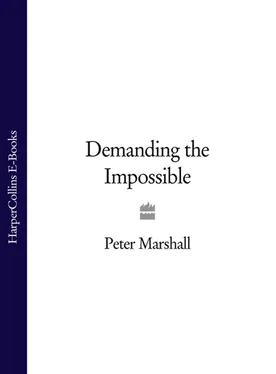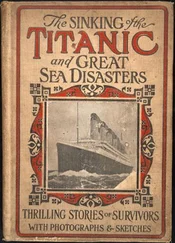In his politics, de Sade challenged the fundamental premisses of European civilization. He had a very low opinion of politics; it is a ‘science born of falsehood and ambition’ which teaches ‘men to deceive their equals without being deceived themselves’. 7 In every book, he stresses that society is divided into two antagonistic classes founded on property. Anticipating Proudhon, he defines property as ‘a crime committed by the rich against the poor’. The origin of the right of property is in usurpation: ‘the right is in origin itself a theft, so that the law punishes theft because it attacks theft’. 8 Speaking from direct experience, de Sade knew that the lawcourts only dispense justice in favour of the wealthy: ‘The laws of a people are never anything but the mass and the result of the interests of the legislators.’ 9 As for war between nations, it is simply authorized murder in which hired men slaughter one another in the interests of tyrants: ‘The sword is the weapon of him who is in the wrong, the commonest resource of ignorance and stupidity.’ 10
In place of the existing class-ridden and unjust society, de Sade proposed several alternatives at different stages in his life. Before the outbreak of the French Revolution, in the second volume of Aline et Valcour , written in 1788 and published in 1795, he depicted a Utopia in the city of Tamoe in the South Seas. The king Zamé had as a young man visited Europe and found that the greatest causes of misery were private property, class distinctions, religion and family life. He therefore chooses to avoid these ills by making the State control manufacture and employ all the people. All have equal commodities and comforts, and there is no prison or death penalty.
After witnessing the rise to power of Robespierre, the strengthening of the French State, and the Terror which followed, de Sade had second thoughts about the beneficial role of the State in society. In Juliette , written in 1794 and published in 1797, he tackled the question of government and law head on and concluded that anarchy is best. In a conversation between two Italians, one interlocutor rejects the social contract a la Rousseau since it serves only the general will but not particular interests. He goes on to reject the restraint of law:
Let us convince ourselves once and for all that laws are merely useless and dangerous; their only object is to multiply crimes or to allow them to be committed with impunity on account of the secrecy they necessitate. Without laws and religions it is impossible to imagine the degree of glory and grandeur human knowledge would have attained by now; the way these base restraints have retarded progress is unbelievable; and that is the sole service they have rendered to man. 11
The passions, he maintains, have done more good to mankind than laws. Indeed, individuals who are not animated by strong passions are merely mediocre beings: ‘Compare the centuries of anarchy with those of the strongest legalism in any country you like and you will see that it is only when the laws are silent that the greatest actions appear.’ We should therefore do away with laws: if man returns to a state of nature, he would be far happier than is possible under the ‘ridiculous yoke’ of the law. There is absolutely no need for laws to obtain justice, for nature has given man the instinct and necessary force to get justice for himself. The universal law which nature imprints in every heart is ‘to satisfy ourselves to refuse our passions nothing, whatever the cost to others’. If this means oppressing another, the oppressed would have the right to revenge himself, and could check the oppressor. As a result, ‘I have far less reason to fear my neighbour’s passion than the law’s injustice.’ Anarchy therefore has nothing to do with despotism and is best:
Tyrants are never born in anarchy, you only see them raise themselves up in the shadow of the laws or get authority from them. The reign of laws is therefore vicious and inferior to anarchy; the strongest proof of my proposition is the necessity a government finds itself in to plunge itself into anarchy when it wishes to remake its constitution. 12
In the last volume of Juliette , the theme is taken up again at length and another Italian declares: ‘Give man back to Nature; she will lead him far better than your laws.’ 13 It is the conclusion towards which the most daring thinkers of the Enlightenment were groping.
De Sade did not however leave it at that. Conscious of the immediate practical task of remaking French society, and concerned at the authoritarian direction the French Revolution was taking, he include in his Philosophie dans le boudoir (1795) a long address entitled Frenchmen, a further effort if you wish to be Republicans ! It offers a political programme for a ‘free State’; a State which he would like to keep to a minimum. As such it is a synthesis of his two earlier positions.
The address continues to reject religion completely. De Sade calls on his fellow countrymen to replace the ‘theistic follies’ introduced by the ‘infamous Robespierre’ with social precepts to be taught by a system of national education. Although he would give the State this task to perform it still would have little power as a legal order. A new society would develop new morals and in a State based on liberty and equality there would be practically no crimes to be punished. The laws which might remain should be ‘so element and so few that all men whatever their character can comply with them’. 14 At a time when the French government had just pronounced the respect of private property, de Sade maintained that there should only be a law which punishes not the robber but the man who is careless enough to let himself be robbed.
De Sade always insisted that crimes are committed out of want or passion, and the best way to avoid them is to eradicate the interest in breaking the law. As for those who commit crime because it is a crime, one should try and win them by kindness and honour. Above all, the death penalty should be abolished forever. Although murder is a horror, de Sade recognized that some killing may be necessary to defend a country and as such should be tolerated in a republic. As a crime of passion, however, it should not be revenged by another judicial murder.
As for those crimes motivated by lust (including rape, sodomy and incest), de Sade suggests that the ‘it is less a question of repressing this passion in ourselves than in regulating the means by which it can be satisfied in peace.’ 15 He therefore recommends public brothels where people can satisfy their wishes to command and be obeyed. To avoid public disorder, de Sade advocates unbridled promiscuity: ‘give free play to these tyrannous desires, which despite himself torment him [man] ceaselessly’. 16 The satisfaction of physical love as a natural passion should not be bound by marriage bonds, false modesty or even that love – called the ‘madness of the soul’—which is selfish and exclusive. 17 And consistent with his doctrine of complete equality, de Sade insists that women should have the equal opportunity and the same licence as men to satisfy their own desires:
no act of possession can ever be exercised on a free person; it is as unjust to possess a woman exclusively as it is to possess slaves; all humans are born free and with equal rights; let us never forget that; consequently no sex can have a legitimate right to the exclusive possession of another, and no sex or class can possess the other exclusively. 18
De Sade’s attitude to sex has often been misunderstood. He was the first to recognize the overwhelming importance of sex: ‘Lust is to the other passions what the nervous fluid is to life; it supports them all, it lends strength to them all.’ 19 But sadism is not merely a branch of sex. It has been defined more broadly as ‘the pleasure felt from the observed modifications on the external world produced by the will of the observer’. 20 The crucial point is that the action is willed and that any act which produces visible and audible changes in another has a component of sexual pleasure. It so happens that for de Sade pleasure tends to be pain diminished, and pain is the absolute. It is easier to affect people by pain than pleasure, by destruction than creation, but this does not mean that constructive sadistic pleasure is not possible. And while he shows that the object of power is pleasure (which consists in applying sanctions to those in one’s control), de Sade’s egalitarian morality made him see all those who seek or acquire such power as evil.
Читать дальше












